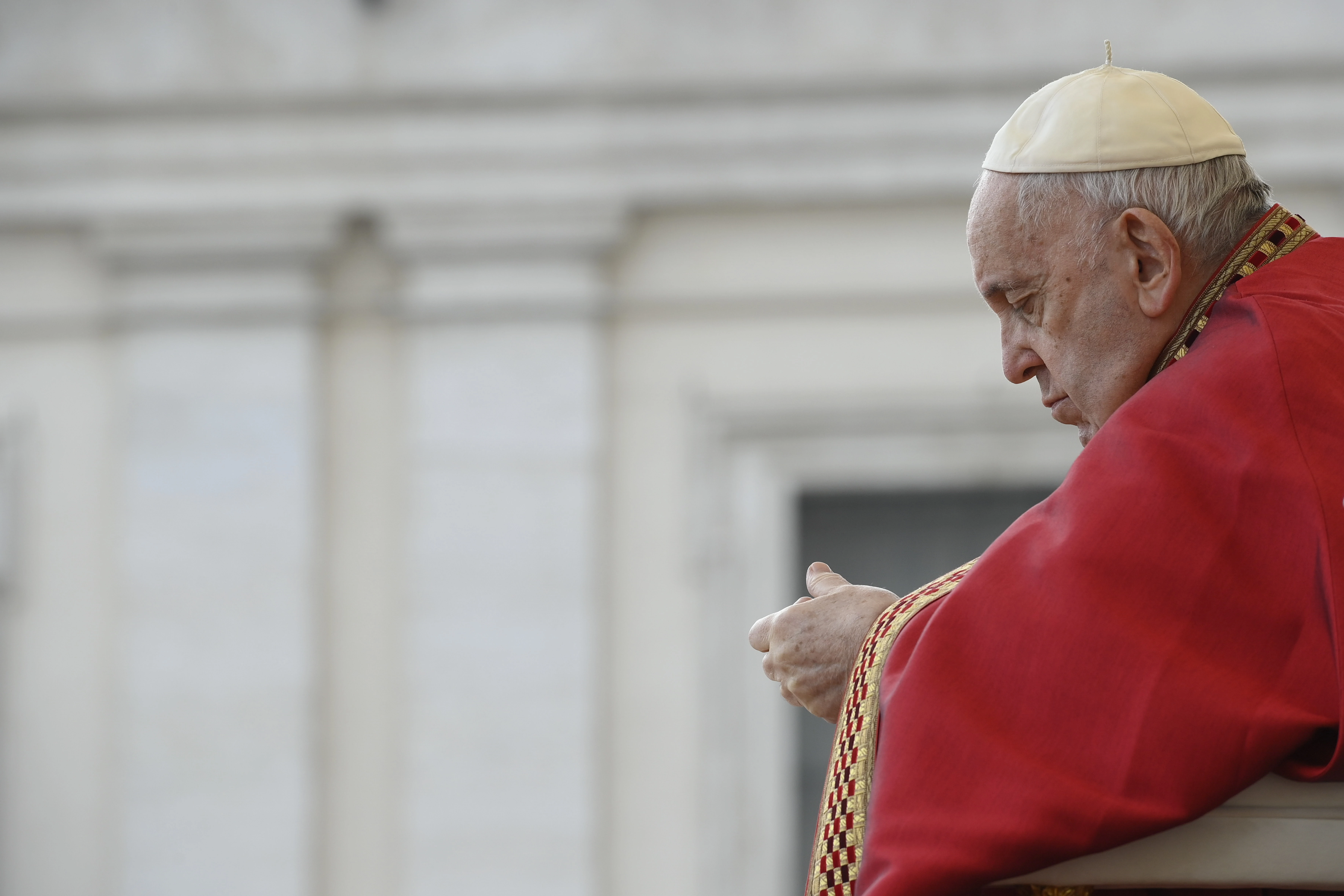Ensuring Accountability: The Future Of Abuse Reform In The Catholic Church After Pope Francis

Table of Contents
Pope Francis's Actions and Their Impact
Pope Francis's papacy has witnessed a notable shift in the Church's approach to abuse. While critics argue that progress is too slow, his actions have undeniably altered the landscape of abuse reform in the Catholic Church.
Legislative and Procedural Changes
Significant legislative and procedural changes have been implemented under Pope Francis. These include:
- Creation of new Vatican tribunals: Specialized tribunals have been established to handle cases of clerical sexual abuse, aiming for greater efficiency and consistency in investigations.
- Increased transparency in investigations: While still imperfect, there's been a push for more openness in investigations, although significant challenges in accessing information persist.
- Amendments to canon law regarding abuse reporting and prosecution: Canon law, the Church's internal legal code, has been amended to improve reporting mechanisms and streamline the prosecution of abusers. However, critics point to loopholes and a lack of uniform application across dioceses.
The effectiveness of these changes varies greatly depending on implementation. Some dioceses have demonstrated a strong commitment to these reforms, while others lag significantly, highlighting the need for stricter oversight and enforcement. The uneven application of these new laws underlines the inherent challenges of enforcing reforms within a decentralized institution.
Shift in Church Culture and Attitudes
Beyond legal changes, Pope Francis has emphasized a shift in Church culture and attitudes towards abuse. This includes:
- Emphasis on zero tolerance policies: While the concept of "zero tolerance" is often debated in its practical application, the rhetoric surrounding a stricter approach is undeniable.
- Increased training for clergy and laity on child protection: Training programs aimed at preventing abuse and responding appropriately to allegations have become more widespread.
- Promotion of victim support and restorative justice initiatives: The Church has shown increased (though still insufficient) support for victim services and reconciliation efforts.
However, ingrained clericalism and resistance from within the Church hierarchy continue to hinder the effectiveness of cultural change initiatives. The deeply rooted power structures within the Church need significant reform to fully support survivors and prevent future abuse. Papal pronouncements emphasizing compassion and accountability, while important symbolically, have not always translated into tangible changes on the ground.
Addressing Systemic Issues
Addressing the systemic issues that facilitated abuse is paramount. This requires tackling:
- Power imbalances within the Church structure: The hierarchical nature of the Church has long shielded abusers, and efforts to decentralize power and promote transparency are crucial.
- Fostering a culture of accountability: A culture where reporting abuse is encouraged and perpetrators are held responsible, rather than protected, is essential for lasting change.
- Promoting transparency and open communication: Openness about past abuses and current efforts to address them is key to regaining public trust.
The systemic factors contributing to the crisis – secrecy, the prioritization of institutional reputation over victims' needs, and the lack of external oversight – must be actively addressed. Reform requires more than just new laws; it necessitates a fundamental shift in the Church's priorities.
Remaining Challenges and Necessary Steps
Despite progress, significant challenges persist in the pursuit of meaningful abuse reform in the Catholic Church.
Strengthening Independent Investigations
Internal investigations often lack the independence needed to ensure impartiality. Essential steps include:
- Greater autonomy in investigations: Independent bodies, free from Church influence, are needed to conduct thorough and unbiased investigations.
- Improved cooperation with civil authorities: Greater collaboration with secular legal systems is vital to ensure accountability.
- Ensuring the protection of whistle-blowers: Those who report abuse must be protected from retaliation.
Concerns about conflicts of interest within the Church remain a significant hurdle. External audits and oversight mechanisms are needed to ensure transparency and accountability in investigations.
Financial Transparency and Reparations
Financial transparency and adequate compensation for victims are essential for accountability. This includes:
- Publishing financial records related to settlements and support for victims: Openness about the financial resources allocated to addressing abuse is crucial.
- Establishing independent mechanisms for compensation: Fair and efficient systems for compensating victims are vital.
- Implementing effective measures to prevent future financial misconduct: Robust financial oversight is necessary to prevent the misuse of Church funds.
The financial burden of compensation claims is substantial, but transparency in managing Church funds is paramount. Independent financial audits can help to build trust and ensure that funds are used appropriately.
Ensuring Ongoing Victim Support
Long-term support for survivors is crucial for healing and reconciliation. This necessitates:
- Providing long-term psychological and pastoral support for survivors: Trauma-informed care should be readily available.
- Establishing accessible and effective redress mechanisms: Victims need accessible and efficient pathways for seeking justice and redress.
- Facilitating healing and reconciliation: Restorative justice approaches can play a significant role in facilitating healing for both victims and the Church community.
Providing culturally sensitive and trauma-informed support services is vital. The focus must shift from simply addressing legal requirements to offering comprehensive support that fosters healing and empowers survivors.
The Role of Lay Catholics and the Global Community
Lay Catholics and the global community play a crucial role in demanding and supporting abuse reform.
Advocacy and Accountability
External pressure is essential for driving meaningful change:
- The impact of victim advocacy groups: These groups have been instrumental in raising awareness and demanding accountability.
- Pressure from lay Catholics demanding reform: Lay Catholics have a vital role in holding the Church accountable.
- The role of international organizations in monitoring progress: International organizations can play a crucial role in monitoring the Church's progress on abuse reform.
Successful advocacy campaigns demonstrate the power of collective action in demanding justice and accountability. Continued pressure from lay Catholics and international organizations is vital for maintaining momentum in the fight for reform.
Promoting Transparency and Dialogue
Open communication and transparency are key to fostering healing and preventing future abuse:
- Encouraging open dialogue within the Church: Open and honest conversations are essential for addressing the issue effectively.
- Promoting greater transparency in Church governance: Transparency in decision-making and financial practices is vital.
- Supporting initiatives that foster accountability and prevent future abuse: Support for initiatives aimed at preventing future abuse is crucial.
The media's role in holding the Church accountable should not be underestimated. Open communication within the Church, fostering a culture of listening and empathy, is crucial for rebuilding trust and preventing future instances of abuse.
Conclusion
Ensuring accountability for past abuses and preventing future occurrences is crucial for the future of the Catholic Church. While Pope Francis has taken some important steps towards abuse reform, significant challenges remain. Strengthening independent investigations, enhancing financial transparency, and providing ongoing support for victims are vital next steps. The active involvement of lay Catholics and the broader global community is essential to pressure for comprehensive and lasting abuse reform in the Catholic Church. The journey towards a truly accountable Church is ongoing, demanding continuous effort and vigilance. Let's continue to demand and work towards meaningful and lasting abuse reform in the Catholic Church.

Featured Posts
-
 2025 Anzac Day Guernsey Unveiled A New Design Revealed
Apr 25, 2025
2025 Anzac Day Guernsey Unveiled A New Design Revealed
Apr 25, 2025 -
 Banning Old Petrol Cars New Delhis Initiative And Its Implications For Other Urban Areas
Apr 25, 2025
Banning Old Petrol Cars New Delhis Initiative And Its Implications For Other Urban Areas
Apr 25, 2025 -
 The Crucial Role Of A Lawyer After A Car Accident
Apr 25, 2025
The Crucial Role Of A Lawyer After A Car Accident
Apr 25, 2025 -
 Bears Unexpected 2025 Nfl Draft Target Electrifying Playmaker
Apr 25, 2025
Bears Unexpected 2025 Nfl Draft Target Electrifying Playmaker
Apr 25, 2025 -
 Synduality Echo Of Ada Season 1 A First Look At The Anime
Apr 25, 2025
Synduality Echo Of Ada Season 1 A First Look At The Anime
Apr 25, 2025
Latest Posts
-
 Six Nations 2025 Are Scotlands Recent Results Misleading
May 01, 2025
Six Nations 2025 Are Scotlands Recent Results Misleading
May 01, 2025 -
 Nikki Burdine And Neil Orne Two New Projects Together
May 01, 2025
Nikki Burdine And Neil Orne Two New Projects Together
May 01, 2025 -
 Colorado Buffaloes Visit Texas Tech Toppins 21 Point Performance Sets The Stage
May 01, 2025
Colorado Buffaloes Visit Texas Tech Toppins 21 Point Performance Sets The Stage
May 01, 2025 -
 Six Nations Roundup France Reigns Supreme England Crushes Wales Scotland And Ireland Struggle
May 01, 2025
Six Nations Roundup France Reigns Supreme England Crushes Wales Scotland And Ireland Struggle
May 01, 2025 -
 Six Nations 2024 Frances Triumph Englands Dominance And Disappointments For Scotland And Ireland
May 01, 2025
Six Nations 2024 Frances Triumph Englands Dominance And Disappointments For Scotland And Ireland
May 01, 2025
